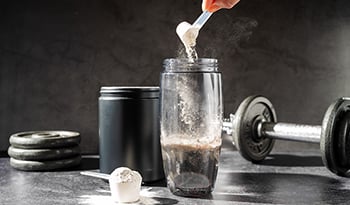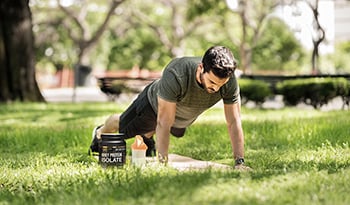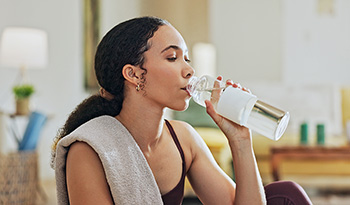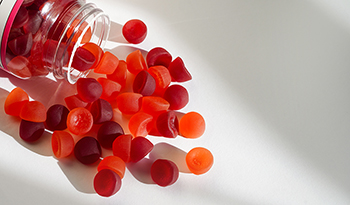6 Practical Fitness Tips for New Moms
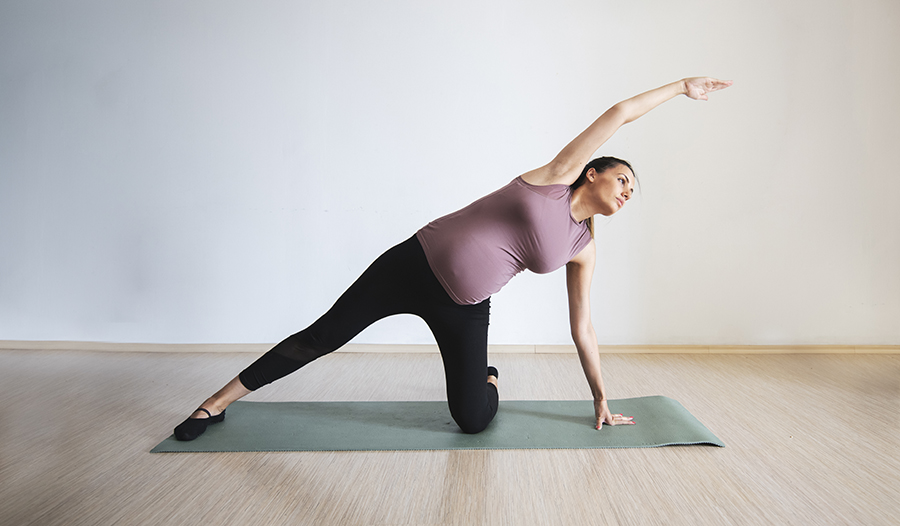
I remember that first workout postpartum. Prior to pregnancy, I had been working out for years yet somehow it felt like the first time I’d ever worked out. It was rough! If you’re feeling this way, the good news is, it gets better. As a certified personal trainer, I was excited about the challenge to get back into shape after having my baby. Keep reading for a list of some of my top tips to help you get back into shape.
1. Listen to Your Body
You just did an amazing thing; you literally grew another human inside of you over the last nine months. Your body went through a lot. Go easy on it as you try and get back into things. While you might want to jump right back into workouts to get rid of that baby weight, it is so important to let your body rest during those first six weeks postpartum and make sure you get the go-ahead from your doctor. If you are recovering well and feel like you can do a little more, try some light stretching and walks to slowly get your body back into it.
2. Focus on Postnatal Diet and Nutrition
Even with your physical activity being limited in the first few weeks postpartum, you can still work towards your goals. This is a great time to make diet and nutrition your focus. Take the time to eat! I love food. I’m usually that person that is always thinking about what I am going to eat next, but as a new mom, I found it so easy to skip meals. Having a newborn is time-consuming and exhausting. Although it seems like there is never time to eat, it is so important to make time. You can’t take care of your baby if you’re not taking care of yourself. You are going to feel so much better if you are eating well.
Eating a nutritious diet is key to helping your body heal, having adequate energy during the day, and losing those unwanted pounds. Try to eat mostly clean, whole, unprocessed foods. Aim for lots of fruits, vegetables, and lean meats. For nursing mamas, I would recommend adding foods to your diet that help with milk production, like coconut, oatmeal, dark leafy vegetables, bone broth, and brown rice. You can also try adding a lactation support supplement to help keep up your milk supply.
Oftentimes, new moms make the mistake of not eating enough calories in order to lose their post-pregnancy weight. However it is extremely important to make sure you are eating enough and increasing your calorie intake, especially if you are nursing. By focusing on the right foods, you can still lose weight while eating adequate calories.
There is such a focus on prenatal nutrition and supplemental support; unfortunately, there is not as much guidance for the postnatal period. I recommend taking a postnatal vitamin. I try and get all of the nutrients I need from food sources but it can be so easy to miss some or not get enough of some vitamins and minerals, especially for nursing mamas. As with any supplement, make sure you check with your doctor before taking anything.
3. Stay Hydrated
The thirst was real as my milk came in. It felt like I couldn’t drink enough water. Staying hydrated is so important to keep your milk supply up, but it’s also great for you non-nursing mamas too! It can help improve energy, aid in weight loss, improve your cardiovascular health, and improve your brain health. Mom brain anyone? Make sure you are drinking at least half your weight in ounces. For example, someone that weighs 150 pounds would need about 75 ounces of water each day. If you get sick of plain water, try adding a water enhancer to mix up the flavor.
4. Don’t Neglect Your Mental Health
Postpartum depression is real and unfortunately, more common than you would think. It’s estimated that 1 in 7 women experience postpartum depression. Adjusting to your new life can be hard as you run on no sleep, deal with your new body, experience hormones raging all over the place, and on top of it, you are taking care of a new baby. It can be a lot. Watch for signs of postpartum depression and make sure you are taking time for yourself each day.
Breathing exercises can be a great way to cope with the new added stress and help heal your abs. Win-win! You can also sip on an anti-stress drink to help relieve some of that stress. Try looking for one with magnesium, which has been shown to reduce anxiety.
Some other practices to help with stress are meditation or yoga. Free meditation apps and guided yoga workouts are now easily accessible. You can also try a relaxing bath or read a good book. Find something to do for yourself to help relieve that stress.
5. Get Into a Good Postnatal Exercise Routine
I am a big believer in getting your workout done first thing in the morning. When you try and get it done later in the day, something always comes up. Especially when your day is spent taking care of someone else.
By the time you’re cleared for workouts, you’ve probably realized that tired is your new normal. As backwards as it seems, waking up to get in a workout can help get that energy back. Don’t get me wrong—those first few days of getting up early can be torture, but the feeling you get after a good workout makes you feel like Supermom.
I like to get up early enough to get in a good workout, eat a good breakfast, and drink lots of water before the baby is up. The days I stick to it go so much better. I am in a better mood and I accomplish a lot more throughout the day. Find a routine that works for you and stick to it.
6. Don’t Overdo Exercise, and Choose the Right Postpartum Workouts
It’s important to not overdo it when you finally jump back into workouts. Your body went through a lot, and you most likely won’t be in the shape you were in before. Remind yourself that it’s going to take some time.
For the best results, I recommend both strength training and cardio. Start with lower-intensity workouts and slowly increase the intensity. High-intensity interval training, or HIIT, is a great way to burn off fat, but you want to take it slow and build up to high-intensity workouts.
Oh, and abs! Let’s talk about those. Diastasis recti: have you heard of it? It’s the partial or complete separation of the rectus abdominis muscle. This is so common but often never even mentioned when you have a baby. That separation can make your belly pooch and make you feel like you still look pregnant.
Most women have some separation postpartum, but it’s important to determine how severe. If you have more than a two-finger separation, you are going to want to alter your exercises so that you don’t make it worse. Ask your doctor to check you for it when you go in for your postpartum checkup. Oftentimes it will heal on its own as you regain abdominal strength but sometimes you need to do specific exercises to help heal it and avoid certain exercises. If you have a severe separation, it might even be good to meet with a physical therapist or postpartum fitness specialist.
I hope these tips help you with your postpartum journey!
DISCLAIMER:This Wellness Hub does not intend to provide diagnosis...















































































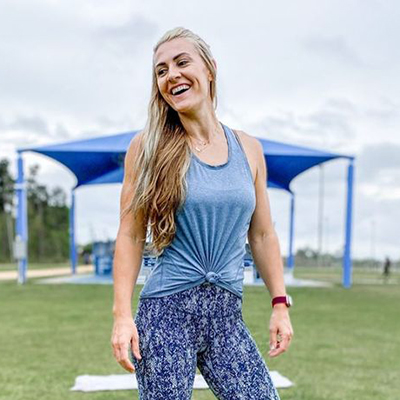
 Table of Contents
Table of Contents






